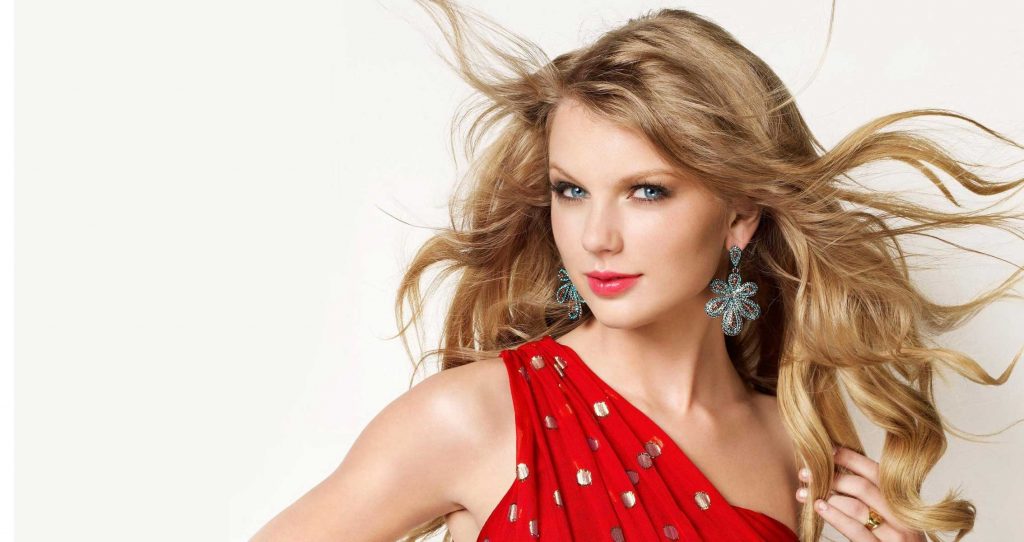 There are very few success stories in life to match that of Taylor Swift. As a gangly, awkward-looking, frizzy-haired, and introspective teenager, she learned to ignore the taunts and teasing of her schoolmates and focus on her dream of becoming a singer/songwriter. She was an outsider who had difficulty socializing and lived largely in her imagination. Taylor would sit by herself for several hours each day putting all her feelings onto paper in the belief that one day her deepest thoughts would form the basis for all the songs she dreamed of performing. That day came, of course, and Swift is now one of the top recording artists on earth with over 136 followers on Instagram, 86 million on Twitter, and a personal net worth estimated at $400 million.
There are very few success stories in life to match that of Taylor Swift. As a gangly, awkward-looking, frizzy-haired, and introspective teenager, she learned to ignore the taunts and teasing of her schoolmates and focus on her dream of becoming a singer/songwriter. She was an outsider who had difficulty socializing and lived largely in her imagination. Taylor would sit by herself for several hours each day putting all her feelings onto paper in the belief that one day her deepest thoughts would form the basis for all the songs she dreamed of performing. That day came, of course, and Swift is now one of the top recording artists on earth with over 136 followers on Instagram, 86 million on Twitter, and a personal net worth estimated at $400 million.
On July 24th, Swift dropped her latest album, Folklore, with just 16 hours’ advance notice, sending her massive worldwide fanbase into ecstasy. It is the eighth studio album of her career, and one which she crafted mainly during her time in self-isolation at her Los Angeles home during the coronavirus lockdown. It’s also far less Swiftian than most of her previous work in the sense that she’s not targeting former lovers or indulging in emotional payback. Rather, this album reveals a more mature artist who is cultivating a reputation as someone who is increasingly willing to be outspoken and promote social justice.
Folklore is largely the product of her collaboration with Aaron Dessner of The National who co-wrote or produced 11 of its 16 tracks. Other collaborators include her long-time co-writer and producer Jack Antonoff (three tracks) and Bon Iver, (one track). The album is a moody, pensive, and lyrical meditation that veers into atmospheric rock territory and marks a distinct change of pace from her more familiar brand of glossy pop melodies. The tracks are suffused with brooding strings, nostalgic piano, and even saxophones and other horns which take Swift into uncharted territory (for her) that could well signal her post-pop transformation. Whatever the case, Folklore is an evolutionary moment in her career that sees her escaping all previous Swiftian incarnations.
The release of Folklore also comes at a transitional point in Swift’s life. She has declared that she is no longer someone willing to be “polite at any cost” and ready to engage in supporting Democratic party candidates and attacking Donald Trump in public. In June, following the brutal police murder of George Floyd that led to nationwide Black Lives Matter demonstrations in the U.S., Swift denounced Trump with the following Tweet: “After stoking the fires of white supremacy and racism your entire presidency, you have the nerve to feign moral superiority before threatening violence? [by saying] ‘When the looting starts the shooting starts.’??? We will vote you out in November.”
Swift’s decision to engage in political activism was highlighted in her new Netflix documentary, Taylor Swift: Miss Americana, which chronicles the period following the release of 2017’s Reputation and the making of her 2019 album, Lover.
Her personal life is also a source of stability these days: for the past four years she has been in a relationship with actor Joe Alwyn, although she steadfastly refuses to comment on their life together. Said Swift last year: “I’ve learned that if I do [talk about Alwyn], people think it’s up for discussion, and our relationship isn’t up for discussion. If you and I were having a glass of wine right now, we’d be talking about it – but it’s just that it goes out into the world. That’s where the boundary is, and that’s where my life has become manageable. I really want to keep it feeling manageable.”
She has spent most of the past three years living with Alwyn in London although they moved back to Los Angeles late last year.
In the wake of the release of Miss America and now Folklore, fans of the 30-year-old Taylor Swift should rejoice in the fact that she is embarking on a brave new chapter in her personal and musical evolution. Here is what the artist herself has to say about how and why this happened.
ON RELEASING HER NEW ALBUM FOLKLORE
“Before this year I probably would’ve overthought when to release this music at the ‘perfect’ time. But the times we’re living in keep reminding me that nothing is guaranteed. My gut is telling me that if you make something you love, you should just put it out into the world.”
ON FEELING A NEW BURST OF CREATIVE FREEDOM
“Even after I made Lover, I kept writing and going to the studio. That’s a new thing I’ve experienced this time around. That openness kind of feels like you finally got the lid off a jar you’ve been working at for years.”
ON HER PAST NEED TO LET HER LOVE LIFE SPILL INTO HER MUSIC
“I don’t really operate very well as an enigma. It’s not fulfilling to me. It works really well in a lot of pop careers, but I think that it makes me feel completely unable to do what I had gotten in this to do, which is to communicate to people. I live for the feeling of standing on a stage and saying, ‘I feel this way,’ and the crowd responding with ‘We do too!’ And me being like, ‘Really?’ And they’re like, ‘Yes!’”
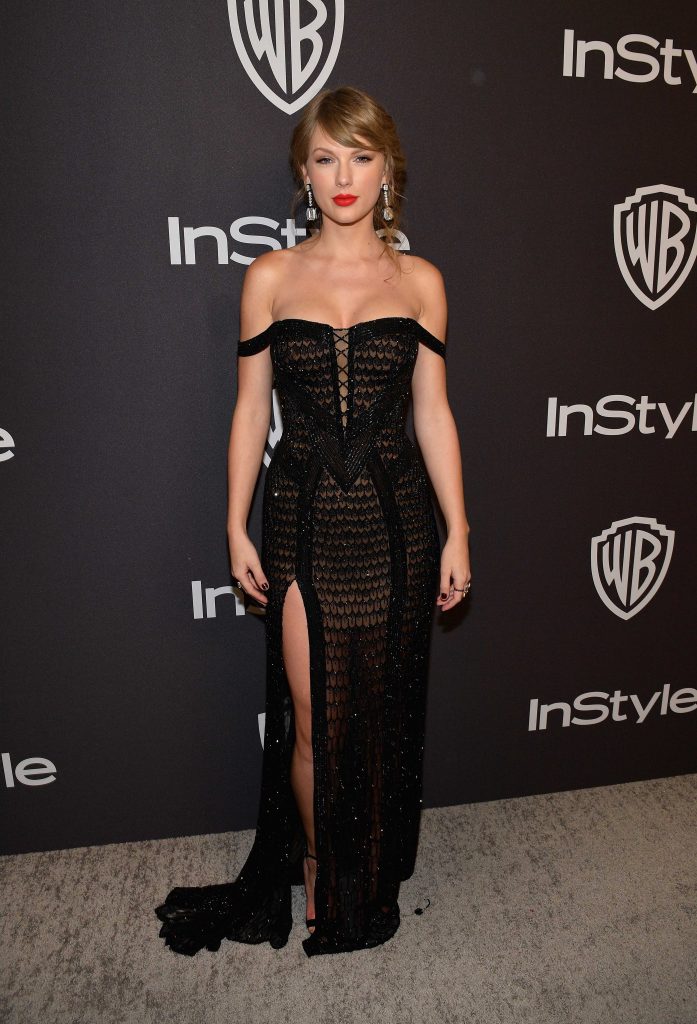 ON DEALING WITH THE UPS AND DOWNS OF FAME
ON DEALING WITH THE UPS AND DOWNS OF FAME
“It’s weird, because in some of the worst times of my career, and reputation, dare I say, I had some of the most beautiful times — in my quiet life that I chose to have. And I had some of the most incredible memories with the friends I now knew cared about me, even if everyone hated me. The bad stuff was really significant and damaging. But the good stuff will endure. The good lessons — you realize that you can’t just show your life to people…
“I used to be like a golden retriever, just walking up to everybody, like, wagging my tail. “Sure, yeah, of course! What do you want to know? What do you need?” Now, I guess, I have to be a little bit more like a fox.”
ON HER GENDER EQUALITY SONG, THE MAN
“It was a song that I wrote from my personal experience, but also from a general experience that I’ve heard from women in all parts of our industry. It’s really about retraining your own brain to be less critical of women when we are not criticizing men for the same things. So many things that men do, you know, can be phoned-in that cannot be phoned-in for us. We have to really — God, we have to curate and cater to everything, but we have to make it look like an accident. Because if we make a mistake, that’s our fault, but if we strategize so that we won’t make a mistake, we’re calculating.
“When I go online and hear the stories of my fans talking about their experience in the working world, or even at school — the more we talk about it, the better off we’ll be. And I wanted to make it catchy for a reason — so that it would get stuck in people’s heads, [so] they would end up with a song about gender inequality stuck in their heads. And for me, that’s a good day.”
ON DEALING WITH PUBLIC PERCEPTION
“I definitely think that sometimes you don’t realise how you’re being perceived. Pop music can feel like it’s The Hunger Games, and like we’re gladiators. And you can really lose focus of the fact that that’s how it feels because that’s how a lot of stan [fan] Twitter and tabloids and blogs make it seem – the over analyzing of everything makes it feel really intense.”
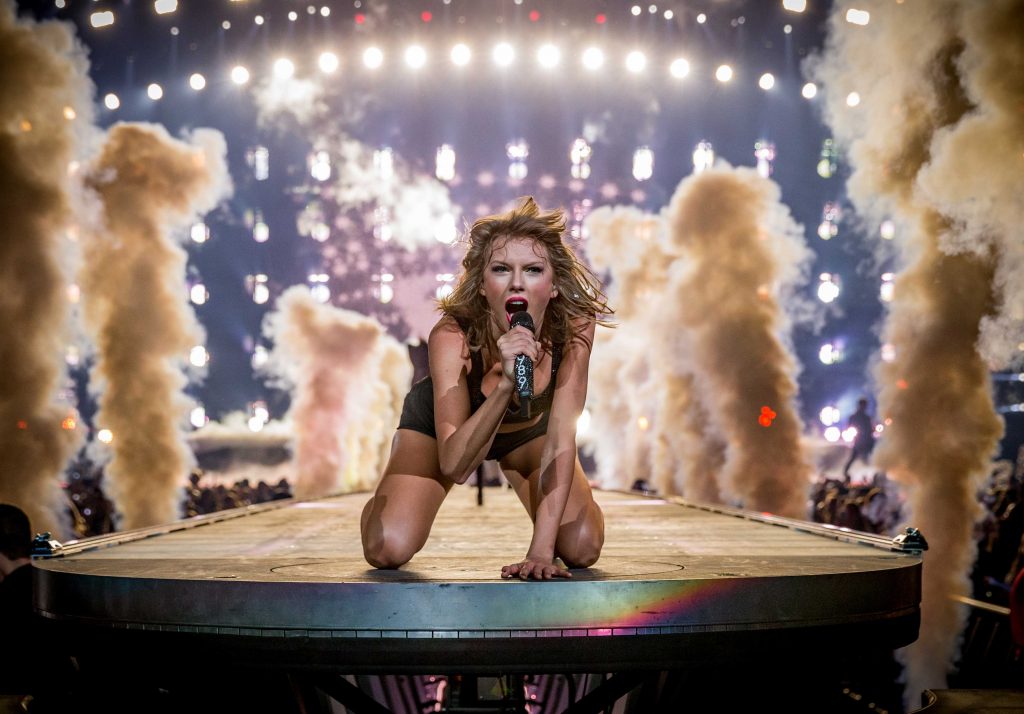 ON HOW SHE SURVIVED 2016 AND ENDURING WAVES OF CRITICISM
ON HOW SHE SURVIVED 2016 AND ENDURING WAVES OF CRITICISM
“I didn’t realise it was like a classic overthrow of someone in power – where you didn’t realise the whispers behind your back, you didn’t realise the chain reaction of events that was going to make everything fall apart at the exact, perfect time for it to fall apart.”
ON NOT WORRYING ABOUT THE HATERS
“I feel more clear about the fact that my job is to be an entertainer. It’s not like this massive thing that sometimes my brain makes it into, and sometimes the media makes it into, where we’re all on this battlefield and everyone’s gonna die except one person, who wins. It’s like, ‘No, do you know what? Katy is going to be legendary. Gaga is going to be legendary. Beyoncé is going to be legendary. Rihanna is going to be legendary. Because the work that they made completely overshadows the myopia of this 24-hour news cycle of clickbait…And somehow I realized that on tour as I was looking at people’s faces. We’re just entertaining people, and it’s supposed to be fun.”
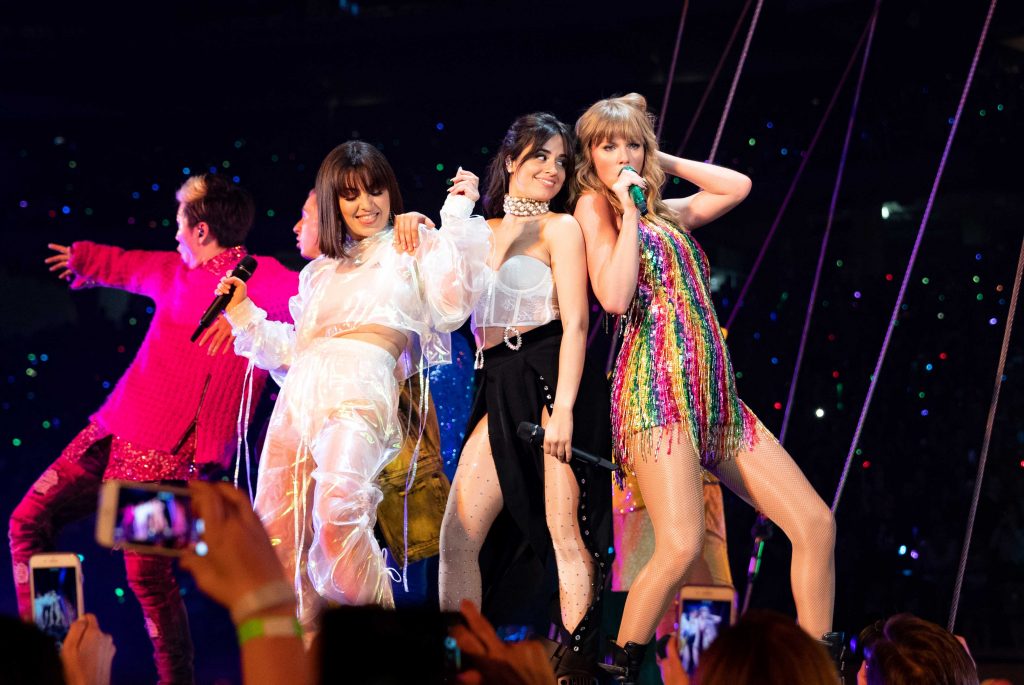 ON HER PREVIOUS REFUSAL TO TALK ABOUT POLITICS
ON HER PREVIOUS REFUSAL TO TALK ABOUT POLITICS
“Every time I didn’t speak up about politics as a young person, I was applauded for it. It was wild. I said, ‘I’m a 22-year-old girl — people don’t want to hear what I have to say about politics.’ And people would just be like, ‘Yeahhhhh!”
“I saw how one comment ended such a powerful reign, and it terrified me. These days, with social media, people can be so mad about something one day and then forget what they were mad about a couple weeks later. That’s fake outrage. But what happened to the Dixie Chicks was real outrage. I registered it — that you’re always one comment away from being done being able to make music.”
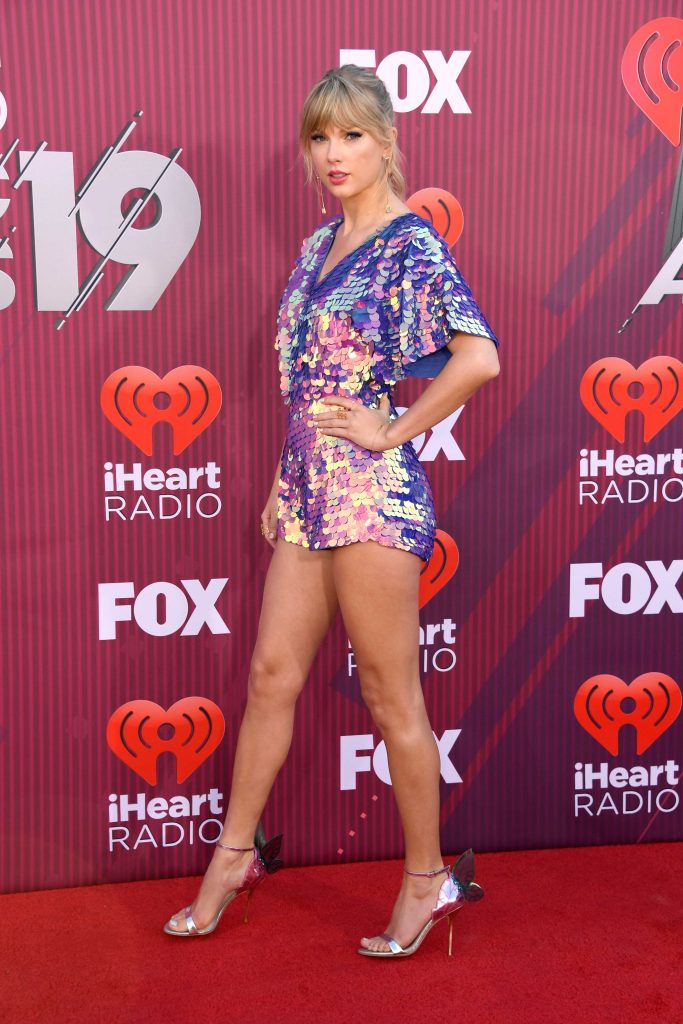 ON NOT OPENLY ENDORSING HILLARY CLINTON IN 2016
ON NOT OPENLY ENDORSING HILLARY CLINTON IN 2016
“I just knew I wasn’t going to help. The summer before that election, all people were saying was, ‘She’s calculated. She’s manipulative. She’s not what she seems. She’s a snake. She’s a liar.’ These are the same exact insults people were hurling at Hillary. Would I be an endorsement, or would I be a liability? Look, snakes of a feather flock together. Look, the two lying women. The two nasty women. Literally millions of people were telling me to disappear. So I disappeared. In many senses.”
ON REGRETTING NOT SPEAKING OUT AGAINST TRUMP IN 2016
“I can’t change that…But I need to be on the right side of history…even though my dad is terrified of threats against my safety and my life. There are so many threats we get on a daily basis that nobody ever knows about and we try to keep that stuff under wraps as much as possible, but my dad is the one who has to see it.”
ON BEING A ROLE MODEL TO YOUNG WOMEN
“I put pressure on myself to be open to my fans and also to be a role model. I’m very grateful for my success and I’ve always tried to stay very close to my fans, arrange meetings, teas, and show people that I really do care about them and how much I appreciate their support. It means a lot to me. It also means that I want to conduct myself in a way that I live up to my own expectations and also be respectful of how much my fans believe in me.
“I think I speak to people very openly and honestly about my life and they trust me on that level and that’s probably why they feel a connection to me. I like to think that my fans get me.”
ON WHAT INSPIRED HER TO BECOME A MUSICIAN
“It can be heart-breaking when you find out that your fairy-tale image of the world doesn’t match the reality. When I was young I used to read fairy tales and I grew up with such a vivid imagination and all that has fuelled this little world of mine where I sit down by myself and just write and think about my life. I was pretty isolated in school and I had no place really to turn except inwards and reach inside of my deepest thoughts and feelings and try to make sense of them in my writing and my songs.”
ON THE WISDOM THAT MATURITY BRINGS
“We all want to believe in the ideal even though we discover through bad relationships that it’s a difficult thing to find. I think you need to believe in the fairy tale just a little bit because otherwise you become cynical and close yourself off to love because you stop trusting those incredible feelings that come over you at the beginning. But as you grow older you learn to try to balance that faith in the ideal with the practical knowledge that it can be very tough and heartbreaking when things don’t work out.”
ON BEING THE SUBJECT OF THE DOCUMENTARY, MISS AMERICANA
“The bigger your career gets, the more you struggle with the idea that a lot of people see you the same way they see an iPhone or a Starbucks,” she muses. “They’ve been inundated with your name in the media, and you become a brand. That’s inevitable for me, but I do think that it’s really necessary to feel like I can still communicate with people. And as a songwriter, it’s really important to still feel human and process things in a human way. The through line of all that is humanity, and reaching out and talking to people and having them see things that aren’t cute… There’s a lot that’s not cute in this documentary.”
ON WANTING TO ENCOURAGE PEOPLE TO ACHIEVE THEIR GOALS
“I was never the cool kid at school, and I understand how hard it can be if you feel that you don’t fit in. But fitting in is not what you should aim for,” Swift says. “Even with the success I’ve had I’ve still had to deal with a lot of criticism and personal attacks. It seems like that’s the nature of our culture – people want to take you down – and it’s up to you not to let that affect you. Instead of worrying about fitting in, you’ve got to stand your ground and have more fun than they do.
“I want to encourage people to be bold and not let fears stop them from accomplishing their goals. If you feel like things aren’t going well, do something to change your thinking and the way you approach things…We can all get in a place where nothing seems to be working out. That’s when we need to inspire ourselves and make things happen.”
ON WHAT SHE WOULD HAVE CHANGED ABOUT HER TWENTIES
“I would have done everything exactly the same way. Because even the really tough things I’ve gone through taught me things that I never would have learned any other way. I really appreciate my experience, the ups and downs.
“And maybe that seems ridiculously Zen, but … I’ve got my friends, who like me for the right reasons. I’ve got my family. I’ve got my boyfriend. I’ve got my fans. I’ve got my cats.”
INTERVIEW: WENN
PHOTOGRAPHS: GETTY
![]()











































